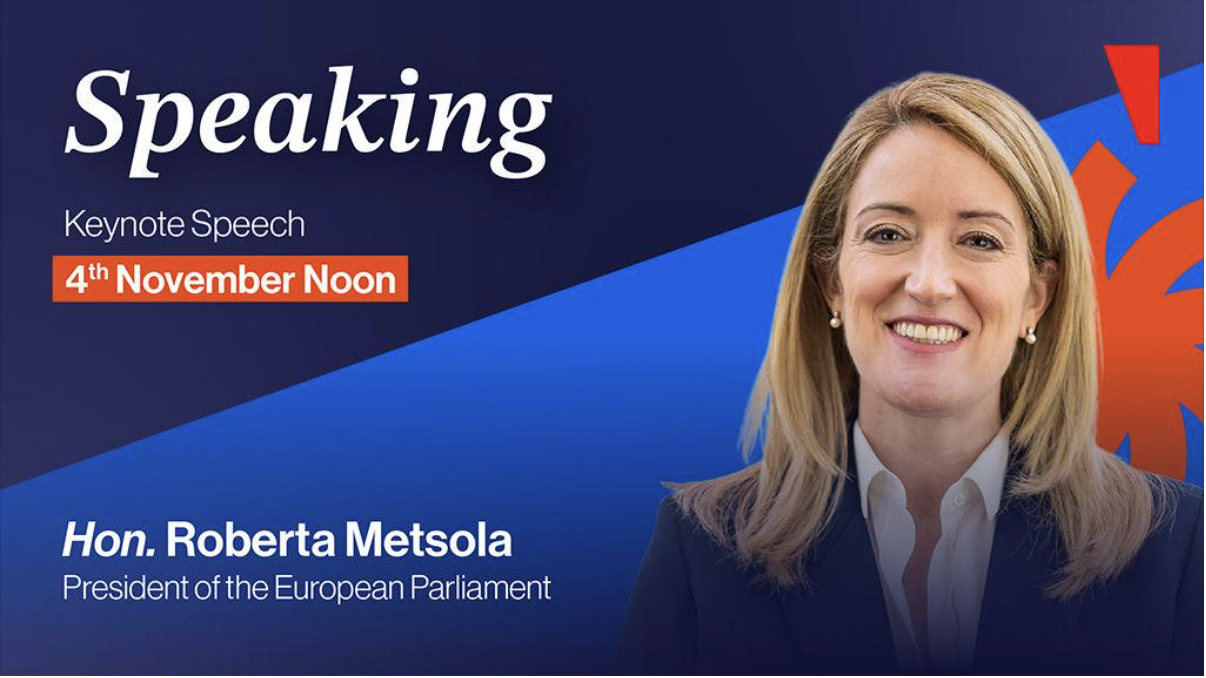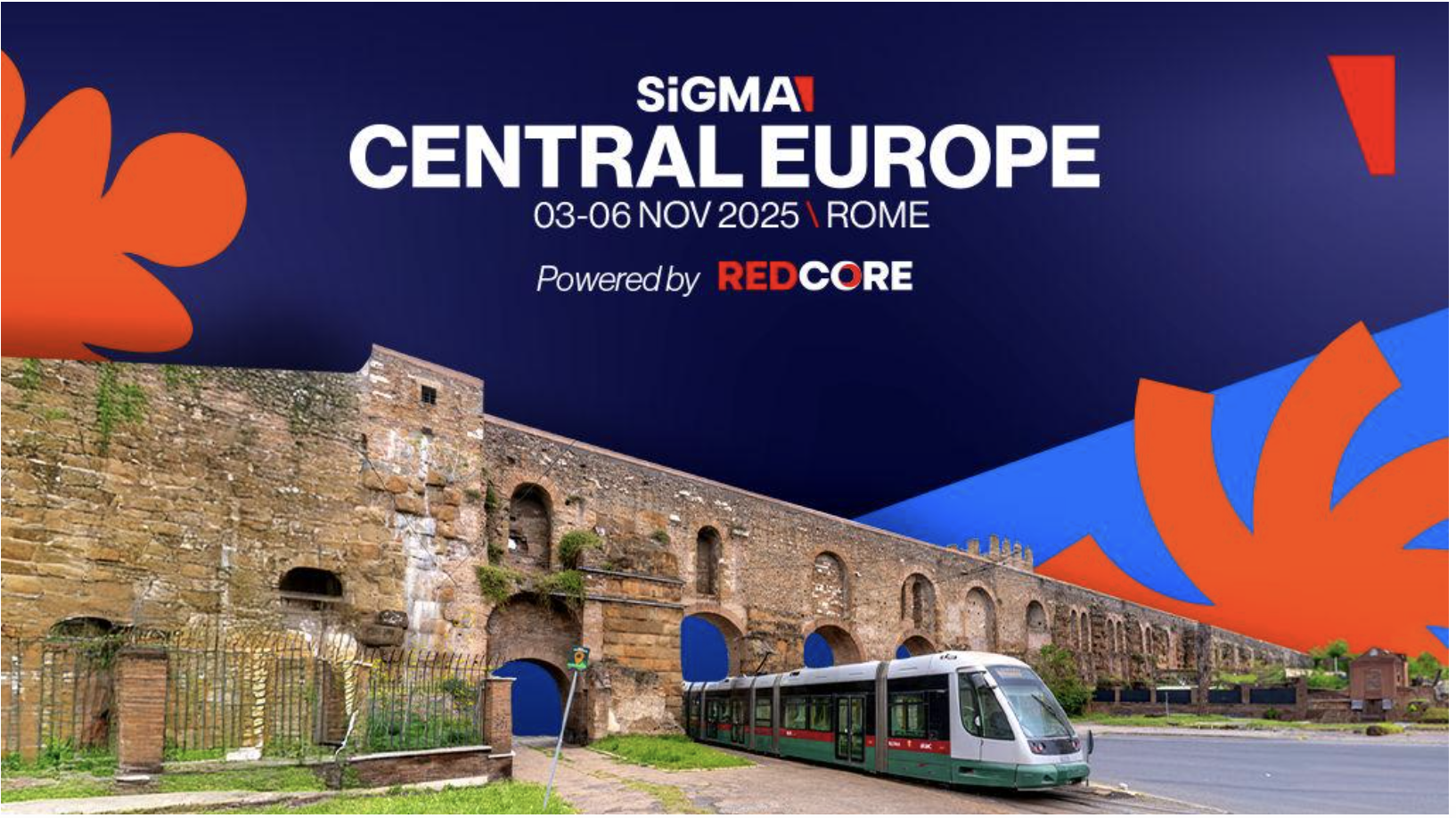Roberta Metsola at SiGMA Central Europe

Europe is your home, says Roberta Metsola as she opens SiGMA Central Europe in Rome
President of the European Parliament, the Hon. Roberta Metsola was in Rome today to officially open SiGMA’s inaugural Central Europe event. Ahead of her keynote, Metsola met with representatives from Malta, including the Maltese ambassador to Rome, H.E Daniel Azzopardi, CEO of GamingMalta, Ivan Filetti, and Keith Zammit, CEO of Elevate AI.
Taking to the stage, her message was one of welcome. “Europe is your home” she reminded the audience – a ‘place of the future’ determined to make it easier, safer, and faster to operate, to startup, and to scale up.
To the packed floor before her she was warm in her delivery. “It is great to open SiGMA, right here in Rome, the heart of Europe,” she said. An industry backed by thousands of exhibitors and delegates that she went on to describe as the ‘building blocks of next generation Europe’ and ‘one of the biggest gatherings of its kind in the world.’
“I’m more than a little proud that it [SiGMA] started in my island home of Malta.”
Smiling, she recalled her university days with SiGMA’s Founder Eman Pulis – “It’s fantastic to see how your idea has grown from a pitch to a global platform.” We are so proud of you, and our country has much to be proud of. But, ultimately, above all – of its people, many of whom are here today.”
Zoning in on Europe’s tech and gaming industry, she highlighted the bigger picture. Beyond numbers or growth charts, what we see is ‘proof that our European way works, that we can be pro business, that we can be forward looking, open to innovation and new tech whilst still doing things responsibly and protecting the most vunerable.’
“Balance between growth and responsibility is what makes Europe unique, gives investors predictibility, builds trust with users and allows creativity to flourish without leaving anyone behind.”
If, however we want Europe to remain compeitive, she cautioned, we have to be honest about what is still holding us back. “Regulation in Europe is essential, but remains too fragmented.”
Disrupting that balance: different licencing systems, operating regimes, and advertising rules make it harder for companies to plan, scale and operate across borders. That has to change, she emphasised.
Ideas like the 28th regime – a single optional European framework for businesses are worth exploring, she suggested. An idea that would make it easier for operators to expand while still respecting national choices – ‘the leap we need to collectively look to as a continent but also as a global international giant.’
The message from entrepreneurs in tech, gaming and finance is always the same, she says: Europe has to move faster, to make it easier for us to invest. It must grow and take risks. They want a Europe that supports, not one that gets in their way.
“Europe cannot run on nostalgia, we can’t cling to old ways and expect new results”, she warns.
To lead and innovate businesses need to have the tools and freedom to compete globally, to understand new dynamics at play and showcase how Europe can lead, she went on to say.
“I want the European way to mean something clear: innovation and not over-regulation, implementation and not unnecessary bureaucracy and delivery, not red tape. Targeted regulation that gives predictability.”
Ultimately, she concludes – compliance should not take up the majority of businesses’ time. Regulation is important, but it should be smart – focused on rule-breakers and not those who play by them. On this, she says, there is broad agreement.
“This is a moment Europe cannot afford to miss, we can either shape this new era of tech or watch others do it for us. We were not designed to follow.”
‘The opportunities in the wider digital economy are enormous’, she enthuses. They can make platforms safer, more transparent and fairer. Europe should be at the forefront of this transformation. Holding us back, she explains, is a lack of support and funding. Indeed, as she mentions, Europe currently has more AI and tech professionals per capita than the US and almost 3 times as many as China.
This is why the EU plans to mobilise 200 BIL Euro for AI and digital industries, she says. She also alludes to the Savings and Investment Union – there to reflow investment to startups and small businesses looking to invest across borders or work for European companies.
“To all of you building the future of tech and digital creativity – keep going, you are showing that Europe’s strength lies not in looking back but in shaping what comes next. And I assure you – we have your back.”


